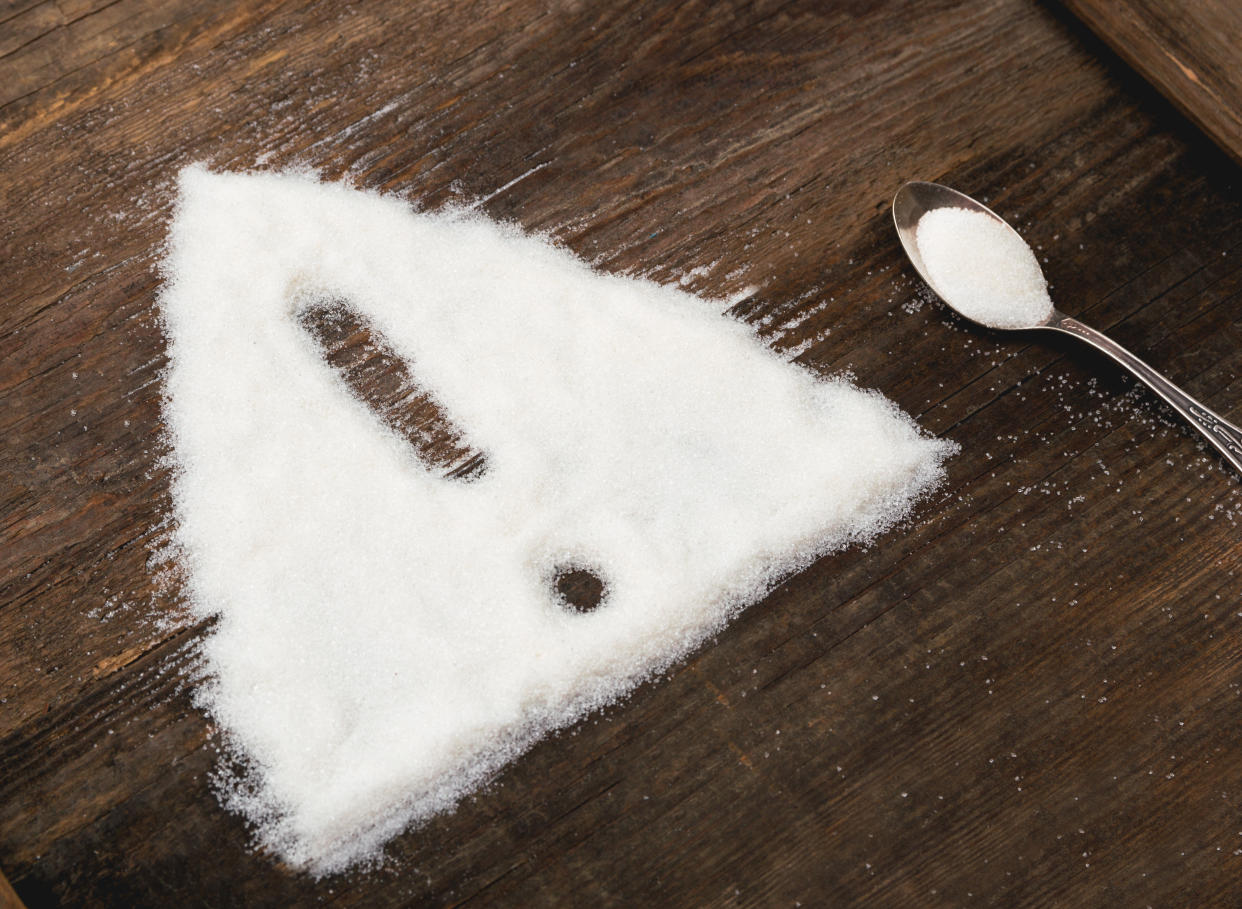Sugar substitute erythritol has been linked to health risk. Are artificial sweeteners safe?

They’re sweet — but they’re not sugar. Artificial sweeteners and sugar substitutes are everywhere, but they also come with concerns that they may contribute to health problems down the road. Now, a new study from Cleveland Clinic suggests that the sugar substitute erythritol raises the risk of cardiovascular issues.
Here’s what we know, and what experts say about the findings.
What is erythritol?
Erythritol is a sugar alcohol, a type of carbohydrate that is almost as sweet as sugar. At just 0.24 calories per gram (compared to table sugar’s 4 calories per gram), it’s a popular choice for sweeteners like Splenda and Truvia, as well as products like lower-calorie ice cream such as Halo Top and candies including Lily’s Chocolate.
Erythritol is produced by the human body, but in low levels. Michelle Routhenstein, a dietitian nutritionist, tells Yahoo Life that when erythritol is consumed in food products, it is absorbed into the bloodstream and later excreted through urine. This causes erythritol to have less of an impact on your blood sugar levels.
What did this study say about erythritol?
The Cleveland Clinic study, which was published in the journal Arteriosclerosis, Thrombosis and Vascular Biology, suggests that erythritol may be linked to cardiovascular issues. The research looked at a small sample size of 20 healthy adults and found that ingesting erythritol made their platelets more hyper-responsive. This can raise the risk of blood clots, which, in turn, can lead to serious conditions such as heart attacks and strokes. This effect was not seen when participants ingested glucose, aka sugar.
Study author Dr. Stanley Hazen, who is chair of cardiovascular and metabolic sciences in Cleveland Clinic’s Lerner Research Institute, tells Yahoo Life that this study follows their previous research that linked elevated erythritol levels with a risk for heart attack and stroke, even among those without known heart disease.
“If your loved one has heart disease especially, I strongly recommend you advise them to avoid erythritol, xylitol and other sugar alcohols,” Hazen says.
What experts say
Jamie Alan, an associate professor of pharmacology and toxicology at Michigan State University, tells Yahoo Life that because this study had only 20 participants, it’s possible that the findings would not hold up with a larger population sample. She also acknowledges that platelet activity is not the only risk factor for blood clots.
Alan agrees, however, that there’s reason to be wary of erythritol, especially if you already have risk factors for blood clots. This includes but is not limited to people who are on oral contraceptives with estrogen, those who have atrial fibrillation, smokers and those at higher risk for stroke (such as having high blood pressure).
“Clots and strokes are life-altering events, and so I think it's appropriate for people who are at risk of these things to start using a lot of caution when they're [consuming] this type of sweetener,” Alan says.
Dr. Joyce Oen-Hsiao, a cardiologist at Yale Medicine, tells Yahoo Life that erythritol isn’t the only artificial sweetener to be linked to increased cardiovascular risk, which she says may be an indication that all sugar alcohols should be avoided for people at high risk for clotting. Sugar alcohol xylitol was also linked with an increased risk of heart attack and stroke, according to recent research.
“Unfortunately we are seeing more risks from artificial sweeteners than originally thought — and it seems to be a risk of the class of sweeteners rather than one specific one,” she says. Oen-Hsiao recommends that people limit their intake of artificial sweeteners whenever possible.
Alan says that more studies need to be done on artificial sweeteners and sugar substitutes as a whole. The immediate risks of artificial sweeteners outside of the sugar alcohol family, such as aspartame, can include gastrointestinal distress, she says.
Routhenstein says that for sweeteners like aspartame, some studies have raised concerns about a link to cancer. However, the majority of research, including reviews by the Food and Drug Administration and other health agencies, has found “no conclusive evidence supporting this risk at typical consumption levels,” she says.
Switching to regular sugar isn’t necessarily the answer either. Oen-Hsiao notes that excess consumption of sugar can lead to diabetes, which also increases risk of cardiovascular events. The American Heart Association advises limiting added sugars to 6% of daily calories, which is about 6 teaspoons (25 grams or 100 calories) for women and 9 teaspoons (38 grams or 150 calories) for men. Oen-Hsiao recommends people choose naturally sweet foods, like berries, when they are craving something sweet as opposed to either type of sugar.
The bottom line
Ultimately, Alan says the artificial sweetener concerns are probably not a “panic issue” — that is, if you've enjoyed treats with the sugar substitute erythritol in the past, you don’t necessarily have to be concerned now. However, “if you are at risk where clots may be an issue for you, you should speak to your doctor to have a conversation about it,” she says.


